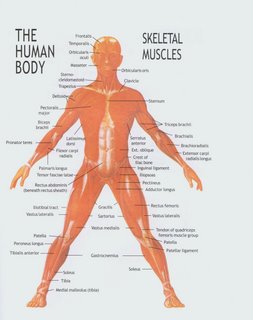Creation to the glory of Jesus Christ
The Universe, created by our Saviour and Lord, is one of the greatest edifices proclaiming His praise, “The Heaven’s declare the glory of God. And the firmament shows His handy work” (Psalm 19:1).
“In the beginning, was the Word and the Word was with God, and the Word was God. He was in the beginning with God. All things were made through Him and without Him nothing was made that was made” (Jn. 1:1-3).
 Interpreting the Biblical Account of Creation
Interpreting the Biblical Account of CreationThere is a popular illustration, “Back in my Father’s day, it took six days, driving during the day, to get to Toronto”. This serves to illustrate that in any language, any given work can have two or more meanings depending on context. In the case above, the word day, means, 1) a generation, 2) a literal 24 hour day, 3) the daylight portion of the day.
The illustration is not overly difficult for an English speaker to grasp, but it introduces the question, “What is interpretation?” In the movie, “The Interpreter,” Nicole Kidman works as a UN Interpreter and acknowledges the difficulty of her job, saying a misstep, a wrong word in translation, could lead to disaster. She was a translator, taking a foreign language, explaining the original meaning of the speaker by using an English word or phrase with the same concept.
Matthew 1:23 conveys the idea succinctly, as the Evangelist quotes Isaiah’s prophecy, “You shall call his name Immanuel” which is interpreted “God with us” (KJV). Some new translations, write, ‘translated’, in place of interpreted, to show the modern English idea, helping to better
interpret the passage to modern ears.
The Science of Biblical Interpretation
The science of Biblical interpretation is called “hermeneutics”, named after Hermes, the messenger god of Zeus. The concept being that the interpreter of Scripture is not doing anything to introduce novelty, not to input anything, but simply proclaiming the Divine oracle to humanity.
The divine oracles clearly guide us into an account of how, Jesus Christ created the world. Beginning with the idea that, “by faith we understand that the worlds were formed by the word of God…” (Heb 11:3):
I.
In the BeginningThe process was divine fiat:
“In the beginning God created the Heavens and the Earth. Now Earth was without form and void and darkness covered the surface of the deep. And the Spirit of God hovered over the waters. And God said, ‘Let there be light’ and there was light (Gen. 1:1-3). “Then God said…. Then God said…. Then God said etc.,” (vv 6,9,11,14,20,24,16),” and it was so…. And it was so…. etc.,” (vv. 7, 9,11 et all).
“by the word of God the heavens were of old and the earth standing out of water and in the water” (2 Peter 3:5). “He commanded and they were created” (Ps. 148:5).
God made the earth and everything in it by divine fiat. That is by His Word. He spoke and it was so; “Thus the Heavens and Earth were finished. And on the seventh day God ended His work” (Gen 2:1). The process is complete. The mechanism for the origin of each aspect, from inanimate planets and processes, to fish and fowl, according to Scripture is direct command and response. No intermediate or proximate process is mentioned in Scripture.
The timetable for this creation is given as well, “God divided the light from the darkness. God called the light Day and the darkness He called Night. So there was evening and morning, the first day.” (Gen. 1:4,5). The Hebrew word for “day” can mean a number of different things, as does the English word, seen in the illustration above. In both languages, its meaning is determined by context.
The Hebrew word, 'day' is actually used 2000 times in the OT, giving a marvelous sample from which to determine Biblical context. The overwhelming majority of times it means a common ordinary ‘day’. Outside of Genesis one, we get this information to help us understand the context:
1) Whenever (ie. In all cases where) the word ‘day’ is used with a numerical adjective, some 400 times; it always means a literal day.
2) Whenever (ie. In all cases where) the phrase “evening and morning’ are used apart from day; they always mean a literal day (38 Times).
3) Whenever either ‘evening’ or ‘morning’ is used with ‘day’ some 23 times each; they always mean a literal day.
4) Whenever the word ‘Night’ is used in context with Day, 52 times, it always means a literal day.
Now not one, not two, not three, but all these are present in the Genesis account. There is a deliberate, calculated intentionality here, foreseeing any possible future arguments to the contrary.
In other words there is no additional way the author of Genesis could have possibly been any clearer in presenting six, regular, 24 hour days! But there is also a Biblical commentary to help clarify this further, as if to slam the door shut on debate. In the 10 Commandments, a rather literal text, we read the rational for the Sabbath, and the only rational for a seven day week, “For in six days the LORD made the heavens and the earth” (Ex. 20:3).
II.
Natural Factors
All is not accounted for by simple intellegent design however. There are factors such as appearent disteliology, suffereing, and brute ugliness, that make an edenic creation seem mythical. But the Bible, being true history and not a story, has accounted for these things and provides an adequate explanation for these things.
1) The Fall: “Cursed is the ground for your sake:... Both thorns and thistles it shall bring forth” (Gen. 3:17,18). The NT reveals, “…the creation was subjected to futility” (Rom. 8:20).
2) The Flood: “All the fountains of the great deep were broken up, and the windows of heaven were opened…. the waters prevailed exceedingly on the whole earth, and all the high hills were covered…. So He destroyed all living things which were on the face of the ground: both man and cattle, creeping things and birds of the air” (Gen. 7:11,19,23). “The world that then existed perished” (2 Pet. 3:6). This radically changes the interpretation of the observable facts, because the creation only dimly reveals it original order, and the geological and hydrological factors mentioned would have cataclysmic effects.
III.
Ethical FactorsNot only is the creation so changed as to barely be recognizable for its origional intention, without the corrections of the natural factors, but there is an even more serious matter-the Human condition.
Man’s intellect rejects this interpretation of the facts in nature and himself: “For this they ‘willfully’ forget: that by the word of God the heavens were of old,… by which the world that then existed perished being flooded by water.” (2 Peter 3:5-6). Romans one closes the door on hope for the natural intellect to accept the ethical implications of special creation, they, “suppress the truth in unrighteousness” (Rom. 1:18).
This is purely ethical. There is no epistemelogical, or physical barrier to discovering this truth, but man needs to be shown his moral rebellion against it.
Summary and Conclusions
Therefore the Biblical doctrine of Creation, is: 1) that God created the Universe in six literal days, and all very good. 2) That sin entered and radically changed much of the good in creation physically; including an apparent dis-teleology (futility). 3) That the flood destroyed the world that then existed, radically and permanently changing the appearance and facts of the earth around us. 4) That sin also caused an ethical dilemma that ethically dissuades man from admitting the facts as God sees them. 5) that despite all this there are enough vestiges in creation, especially if interpreted in light of the above to show both the evident Intelligent Design of the Earth, and mark the Character of the Creator, and to reveal our duty to glorify Him.
The only solution for those who cannot grasp this, is salvation. They must become covenant keepers, as I noted in my last post.
The Church and RevelationHere is the role of the church, which leads well back into the series I had begun to write. According to I Timothy 3:15, the Church is, "The pillar and grounds of the Truth". We are to proclaim, or "preach the Word, in season and out of season" (2 Ti. 4:1), because "it pleased God, by the foolish means of the message preached, to save those who believe" (I Co. 1:21).
Through this the ethical blinders can be removed and redeemed man can glorify God, as he was created to do.
Q: What is the Chief purpose of humanity? A: To glorify God and enjoy Him forever.













